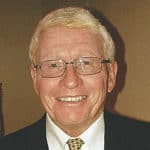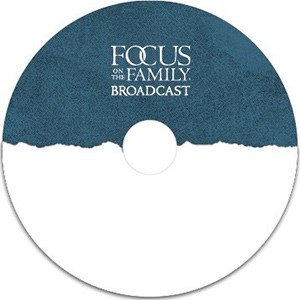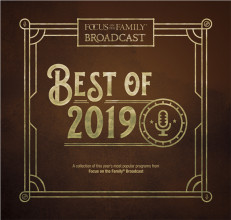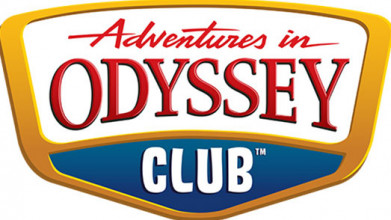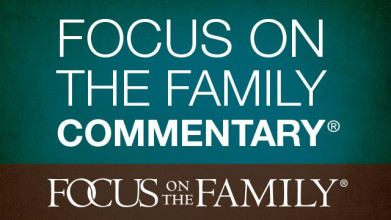Excerpt:
Adolph Coors IV: You know, we wouldn’t worry so much about what other people think of us if we knew how seldomly they do.
End of Excerpt
John Fuller: Well that’s a pretty honest assessment of the human condition. And we’re gonna hear more of that kind of honesty today on Focus on the Family. Your host is Focus President Jim Daly, I’m John Fuller.
Jim Daly: Today’s guest is Adolph Coors the fourth. His friends call him “Ad,” and he’s going to share with us what it’s like to grow up in the family that founded the Coors Brewing Company right here in Golden, Colorado. This is one of our top programs of 2019, and so we wanted to reair it here at the start of 2020 for those of you who may have missed it or want to hear it again.
It is a fascinating tale of wealth, privilege, and even tragedy. And the lessons that Ad learned along the way are very thought-provoking.
John: I would agree, Jim. And it’s really interesting to note that he walked away from the family business altogether, eventually. Here now, Ad Coors, at a Washington County Prayer Breakfast in Pennsylvania, on Focus on the Family.
Adolph: Again, thank you, ladies and gentlemen very much for being here on this beautiful Saturday morning.
One very foggy night, the captain of a large ship saw what appeared to be another ship’s lights approaching in the distance. The two were on a course that would mean a certain head-on collision, so quickly the captain signaled to the approaching vessel, “Change your course 10 degrees west.” The reply came blinking back through the thickening fog that evening, “You change your course 10 degrees east.”
The captain became insulted and pulled rank as he angrily sent a message back, “I’m a sea captain with 35 years of experience. Change your course 10 degrees west.” Without hesitation, ladies and gentlemen, the signal flashed back, “I’m a seaman, fourth class, you change your course 10 degrees east.” The captain, now becoming enraged, realized that the two were rapidly approaching one another and would certainly crash in a few short minutes.
So, ladies and gentlemen, he sent his final warning that foggy night. He says, “Now you listen here, I’m a 50,000-ton freighter. Change your course 10 degrees west now.” My friends, a simple message came blinking back that foggy evening, “I’m a lighthouse.” (Laughter) “And I’m a lighthouse. Change your course now.”
And ladies and gentlemen, like that sea captain in this true story, we as human beings need to change course when we are confronted with the truth. And 23 years ago, now, I was one evening confronted with an incredible truth, as I learned about the awesome love the God of this universe has for you and me, His creation.
Now grant me the privilege—and it is indeed a privilege for me to be here this morning—grant me the privilege of taking you on a spiritual journey. A journey that forever changed the course of my life.
For those of you who may not know, the Adolph Coors Company, located in Golden, Colorado, has today grown into one of the largest breweries in the entire world. My great-grandfather, Adolph Herman Joseph Coors—the founder of our brewery—lost both parents when he was 15. He was trained in his native Germany to be a brewer. And in 1868, with just seven cents to his name, with a dream in his heart, one day Paul stowed away aboard a steamer headed for America. And he landed in Baltimore and to make a long story short, several years later, in the small mining town of Golden, Colorado, along with a business partner, they formed what was then known as the Schueler-Coors Brewing Company. They began to sell their beer to the miners working in the mining camps above this small town. The brewery began to grow rapidly.
Seven years after they began their fledgling little company, on May first, 1880, my great-grandfather, bought his business partner out and formed what is now known all over the world as the Coors Brewing Company.
But in 1914, prohibition hit the state of Colorado. Prohibition became a national law and in 1929 the Depression hit America. And my great-grandfather saw his fledgling little brewery begin to slip through his fingers. And shortly thereafter, he took his own life.
Why do I mention that? Because my great-grandfather made a serious mistake that many people are making today.
And that is they identify who they are in what they do. We need not identify who we are in what we do because what we do can change. What we need to do is we need to identify who we are, and what we are in here. Not what we do.
In September of 1945 I was born into this family. A family, may I suggest, a family much like yours. A family with grand hopes and a family with aspiring dreams.
But ladies and gentlemen, growing up in this family, it was not long before I realized that how I was going to be judged and how I was going to fit into this marvelous family. In looking around my family, Paul, I realized that I was going to fit in based upon three criterion. Number One: Education is of premier importance in our family. My family places a premium on getting the best education you can. Hopefully it will be a chemical engineering degree.
They also place a high emphasis on athletic ability. I come from a family of unbelievable athletes. My father played semi-pro baseball. He was one of the pioneer developers of skiing in the state of Colorado. He formed the Aspen Skiing Corporation back in the late ‘40s and early ‘50s. And then physical appearance is extremely important in our family. These were the three criterion upon how I was going to be judged. And it’s tough growing up in a family when you are judged upon performance. “I love you if… I love you if you get good grades. I love you if you look good. I love you if you perform well on the athletic field every Saturday and Sunday.” (pause)
You know, of all the things that I learned as a young child growing up in this family, the one thing I wish they would have taught me was this: What good is it going to be if you gain the whole world, but in the process of gaining the world you end up losing your soul? Or what can we give in exchange for our souls? I wish somebody had taught me as a young boy. I wish they would have said this: Adolph, if you live for the next world, you will gain this one in the deal, but if you live strictly for this world, you’ll end up losing them both.
Walking through a cemetery one day outside of the town of London, England, I came across an interesting grave marker. The grave market said this: ‘She died for want of things.’ Turning to my right, another grave marker, presumably that of her husband, said this: ‘He died trying to give them to her.’ She died for want of things and he died trying to give them to her.
I ask you this: Is any rich person truly content? Henry Thoreau, the great American poet, once said, “A man is rich in proportion to the number of things he or she can afford to leave alone.” How much money does it take for you and me to be happy? Just one more dollar. Just one more dollar.
You know, growing up in the Coors family, I was enamored by successful businessmen and women. And one day I came across a quote from John D. Rockefeller Senior that caught my attention. John D. Rockefeller Senior, just before he died, said, “I have made billions. But not one of these dollars has brought me any happiness. Not one.” Henry Ford Senior, just before he died, turned to a friend of his one day and he said, “I was happier when I was a mechanic.” And then Mr. Vanderbilt cries out before his death, he says, “The care of 200 million (dollars) is enough to kill anyone. There’s no pleasure in it.”
Now why were these obviously successful individuals able to admit there was something missing in their lives? Let me give you just a hint. My friends, when we’re born into this world, we have a Creator in heaven who creates you and me, batteries not included. And what I mean by that is He places a void right here in our hearts as we come into this world and He places an emptiness right here in our hearts. And you and I know people who go through this life, and we try to pour our careers into this void. We try to pour our families into this void. We try to pour money into this void. We try to pour possessions into this void. You’re looking at a man right now who did that for 31 years of his life.
John: Some pretty honest reflections from Adolph Coors IV on Focus on the Family. And you can get this presentation. It’s part of our Best of 2019 CD collection. Check that out at focusonthefamily.com/broadcast. Or give us a call. Our number is 800, the letter A, and the word FAMILY.
And let’s go ahead and return now to more from Adolph Coors IV.
Adolph: The first 14 years of my life were like a beautiful Norman Rockwell painting. I was a part of a very loving, a very close-knit family. Two older sisters, a younger brother, two wonderful parents. As a family, we did everything together. And I remember wanting to grow up to be just like my father. Adolph Coors III was a remarkable man. Not only was he Chairman of the Board of our brewing empire, he was a successful businessman. He was a successful athlete. He was a multi-talented man. He was a tremendous musician. He was an architect. He was an engineer. He was one of these guys that everything he did, he did it to perfection. And I wanted to follow in his footsteps. I worshiped him. He was my god. Mistake number one. Who is your god this morning? Who do you worship this morning? Jesus?
Every Sunday morning, ladies and gentlemen, as a young child, I was awakened by my mom and dad, and every Sunday morning, we would be driven to a mainline denominational church. But I never remember one time my mom and dad ever set foot in that church with us. Never once. I think that was the missing ingredient in this beautiful Norman Rockwell painting. There’s one thing about the church, we’re never too bad to come in, we’re never too good to stay out.
The year was 1958 and my father grew tired of living in Denver and he owned a beautiful cattle ranch about 20 miles west of Denver. And in 1958, we moved into a home that my father designed and built almost single-handedly. He was an architect. A beautiful, beautiful ranch home. I called it the American dream home.
But ladies and gentlemen, for each of us, life brings many changes. Some of these changes are sudden, some of these changes are gradual. Some of these changes bring us a lot of joy, but then again, some of these changes can bring us a tremendous amount of pain.
And we have a God in heaven who needs to nudge us periodically. And what He does when He nudges us, he says, “ Enjoy my gifts thankfully,” but he says, “Don’t put your faith and trust in the gift. Put your faith and trust in the giver.”
Two years after we moved into this beautiful home, one February morning, a typical, winter Colorado morning, it was snowing very hard, as was custom, my father would awaken early and would have breakfast by himself and then he would get into his automobile and he would drive about 12 miles down the road to the brewery, the Adolph Coors Company. It was typical that morning. It was February ninth, 1960. It was bitter cold. And my father left early, as he always did. But on that February morning, for some unknown reason, just three miles from home, he stopped to what he thought…to help what he thought was a stranded motorist about 50 yards away.
As he began walking over to this man’s car, my father didn’t realize who was waiting for him that morning. This man was an escaped prisoner from the state of California. He had been serving a life sentence for murder. And in 1955, he escaped from this maximum-security prison, came to Colorado and began stalking my father. There was a violent struggle on this tiny bridge that morning, and at 7:55 a.m., the Coors family got a nudge from heaven. My father was brutally murdered. His body was stuffed in the trunk of this man’s car. The car headed south.
You know, from the day I was born, ladies and gentlemen, my life revolved around my father and the Coors family legacy. And now on that fateful day in 1960, my life suddenly took a turn that I was not prepared for.
To all of you who are listening this morning, may I suggest to you that anger is one letter short of danger? Anger is an acid, my friends. It does far more harm to the person who holds it than onto any person on which that anger is given. My father’s kidnapping made national, international headlines. I’ll never forget the day that he disappeared. I walked into our home after a day at school and my mother greeted us at the front door and she said, “Kids, I’ve got some bad news for you. Your father was kidnapped this morning, and I don’t think you’re ever going to see him alive again.” And my mother passed out on the floor in front of me.
Edgar Hoover was called in immediately. My grandfather called him, Mr. Hoover from Washington, DC, and the FBI began to…began looking for the man who perpetrated this horrible crime. And for seven long months after my father disappeared, we did not know whether he was alive or dead. Seven long months after Dad disappeared. And I can remember going to bed every night and I can remember praying to a God I really didn’t know in a personal way. And I would say, “God, if you’re there, bring Daddy back.” And night after night, I would cry myself to sleep.
You know, there’s a philosophy that drives this country today, and that philosophy shouts, “Get all you can, can all you get, sit on the can, and poison the rest!” You know I run into people all over this world who have that kind of a philosophy. For seven long months after my father disappeared, my family hoped beyond hope that he would return to us. But one day, a farmer was walking across his field about 40 miles south of our home and he stumbled across a pile of bones and that was all that remained of my father.
You know God speaks to us in our joy, ladies and gentlemen, but he shouts to us in our pain. He shouts to us in our pain. Not only was I blessed with a wonderful dad, but I was also blessed with a beautiful mother. When the news of my father’s murder hit my family, I watched my 44-year-old mother begin to change before my very eyes. Yes, my mom had a void in her heart, but instead of putting Jesus Christ into her void, I watched my mother begin to pour anger and hate into her void. You know, hate will kill us. Hate will destroy us. I also watched my mother begin to pour alcohol into her void. And alcohol will also destroy us. Alcohol was never meant to fill that void in our heart.
You know, one day a frustrated dad turned to his son and said, “Son, I’m worried about you being in the bottom of your class in school,” and the son replied, “Well, Dad, they teach the same stuff at both ends.” (laughter)
When it came time to go to college a couple of years after my father’s death, I was accepted into one of the best law schools in the state of Georgia. I wanted to become an attorney for the Coors family. And so, at the age of 17, I walked onto that beautiful campus to begin my four years of pre-law, but there’s something about southern girls.
Instead of majoring in pre-law my freshman year, I majored in the Greek system of this beautiful University. I majored in fraternity, I minored in sorority, and I failed academically. At the end of my freshman year, I tallied up my point grade average and to my amazement, it was a .6, which is on the underside of a D, looking up. In fact, I was like the young man in college who called home one day and he said, “I’ve flunked an important test, but I got a high F.” And I’m sure I told my mother I’d gotten a high F. Well, ladies and gentlemen, I returned home that summer.
Remember I’d told you that education is extremely important in our family. And I have a grandfather who has a knack of telling us how we stand. Well, he got a hold of me that summer and he let me know that I had let the family down, and that I had failed.
I also had an uncle who was a Colonel in the United States Marine Corps. Also, I had a cousin who was a Commandant of the United States Marine Corps during the Korean War. And these two men got together that summer and they made a decision. And the decision was that I needed six years in the United States Marine Corps.
(Laughter)
So, one Saturday night, Dwayne, I found myself on an airplane headed to San Diego, California. And that Friday night as I landed in San Diego, California, I walked off this airplane, and I tell you what. I ran into two of the ugliest, meanest guys about the size of Dwayne over here. And they looked at me and they said, “Boy, do you know where you’re going?” And I made a mistake of saying no, and they said, “We do.” And they literally grabbed me by the back of my neck and they threw me in the back of a pickup truck. The Marine Corps recruit training depot was about three miles away and that was my introduction to the United States Marine Corps. Can you imagine the name of Adolph Coors in the United States Marine Corps, what kind of a mix that was?
I was in boot camp about 30 seconds, I would say maybe 30 seconds, and I made a decision. I said, “Boy, you’re not going to survive in here if you don’t get awful tough very quickly.” I spent six years as a United States Marine. My body weight during those six years went from 195 pounds to 275 pounds. To fill my void, I suddenly got involved—and very deeply involved—in the martial arts. Kung Fu, and Karate, and Aikido began to fill my void. You see, I made a decision that I was never going to be hurt again, so I put up a wall. I hid behind a 54-inch chest, 20-inch arms, a 21-inch neck. I made a decision I was going to be the best marine the Marine Corps had ever produced.
The Bible tells us pride goes before our destruction and a haughty spirit before a man’s downfall. You know, we wouldn’t worry so much about what other people think of us if we knew how seldomly they do.
(Laughter/Applause)
Well, I obviously made it six years as a Marine. I escaped death on many, many occasions. And just before I was discharged back in the late ‘60s, one day my mother called me. She said, “Son, I’ve got some bad news for you.” And that morning my mother informed me that my oldest sister living in Glenview, Illinois—just 27 years of age, the proud mother of a brand new baby son, that morning had gone in for a routine physical. And the doctors found a lump on her neck that they biopsied and discovered that that lump was a very dreaded form of cancer.
I ask you another question this morning: Are you putting your faith and trust in your good health? Remember the words of the Psalmist David, “Our days are very few and they’re very brief.” Eleven months after my sister was diagnosed with this dreaded disease, she stepped from this life into the next. Yes, there is more to life than this. As a tree falls, so must that tree lie; and as a man lives, so must he die; and as a man dies, so must he be all through the days of eternity.
Is your passport for eternity stamped this morning? I ask you that. Is your passport stamped with Jesus Christ this morning? We may need that passport sooner than we think. My father needed his passport at 48 years of age, my sister at 27 years of age.
Death is not a respecter of age.
John: We’re halfway through a message from Adolph Coors the fourth on Focus on the Family. And this was one of our most responded to programs from 2019.
Jim: We’ve heard a lot of tragic events that shook this family to its core, John, and we’ll hear the more redemptive part of the Coors family story next time as we learn how Ad Coors found the Lord, and why he walked away from the family business right near us here, in Golden, Colorado.
Let me just say this: If you know someone like Ad Coors who is looking for the meaning of life in everything except a relationship with Jesus Christ, I’d highly recommend that you get them a CD copy of this broadcast.
And we’re making a special version that won’t include all of these extra comments. And we’d be happy to send that CD out to you for a donation of any amount as you help Focus on the Family spread the gospel around the world.
You know, our latest research shows that through the ministry of Focus on the Family over 800 people a day are committing or recommitting their life to Jesus Christ. And get this John…because of our children’s magazines and our Adventures in Odyssey audio drama that is loved by so many of all ages, over a hundred children a day are giving their hearts to Christ. Isn’t that great?!
John: It is tremendous! And there is such a generational impact God is making through Focus on the Family in these decisions.
Jim: And let me say thank you however you may give to Focus, either in a one-time gift or by becoming a monthly partner. You are an important part of this work and the Lord is using you and Focus to reach so many.
We are counting on you. So, get in touch with us today if you’d like to share this inspiring message from Ad Coors.
John: Donate and request that CD at focusonthefamily.com/broadcast or call 800, the letter A, and the word FAMILY. 800-232-6459.
And if you enjoyed today’s broadcast, tell a friend to tune in next time as we hear how Ad Coors finally found meaning in life.
Teaser:
Adolph: And as I said yes to Jesus Christ, a void that I’d try to fill for 31 years of my life was instantly filled. I knew I had been changed.










